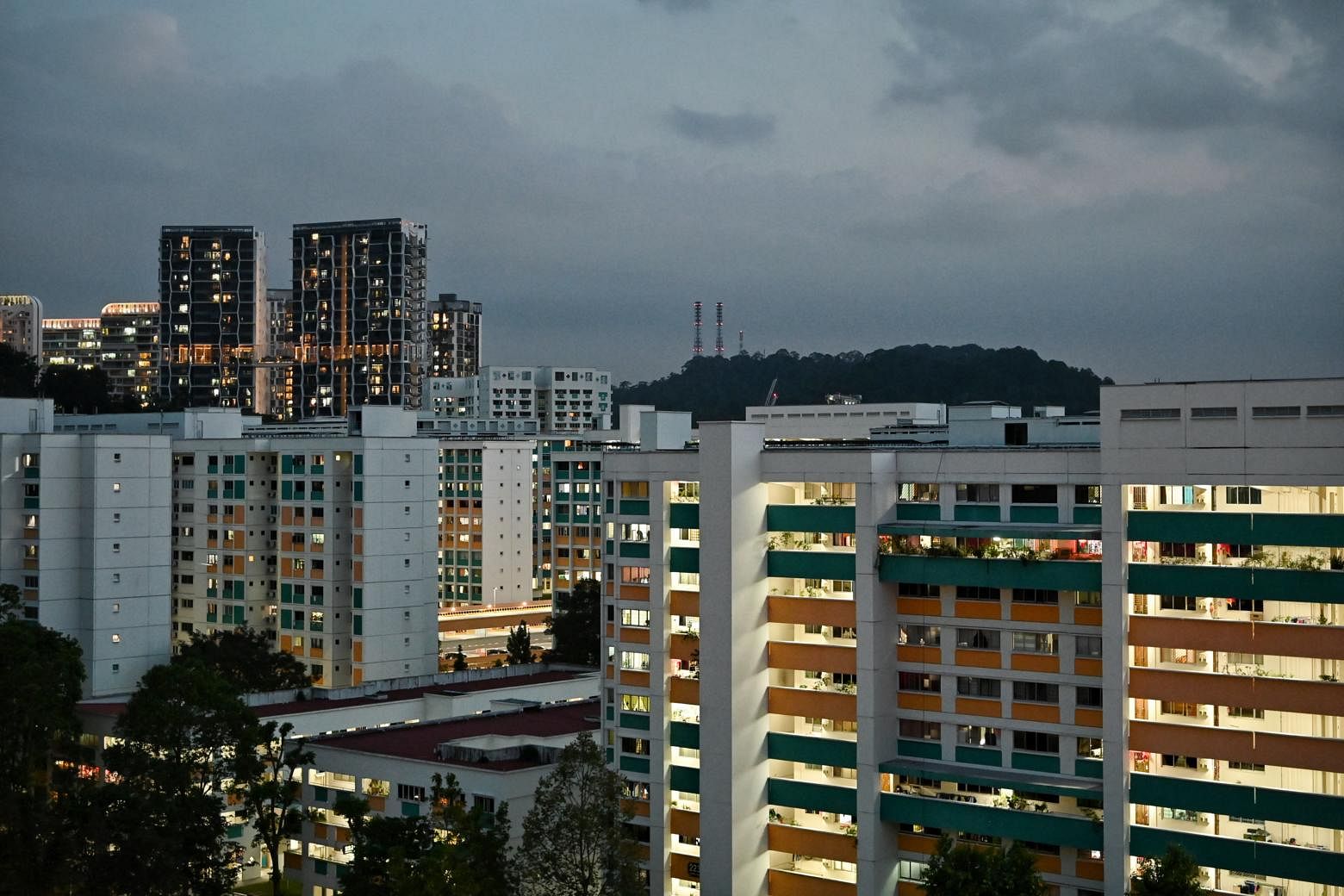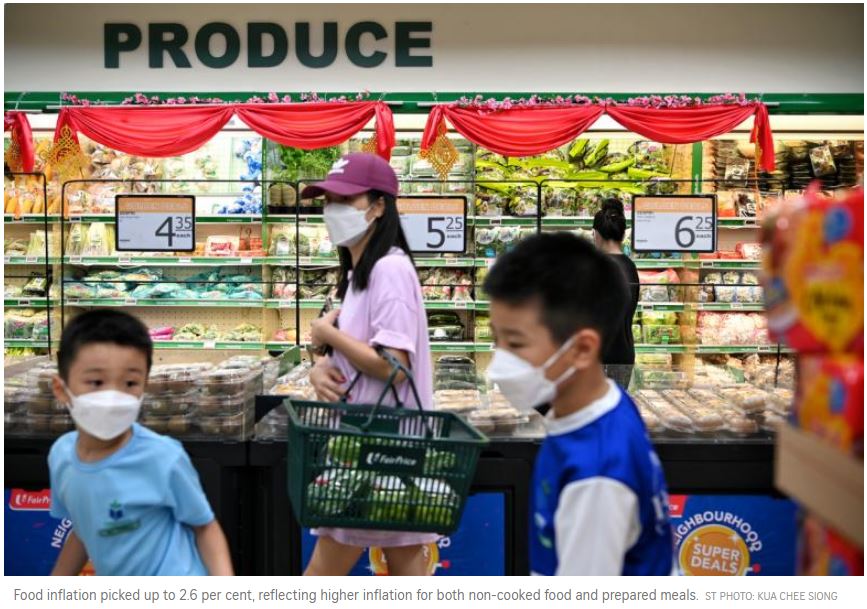Singapore: Core inflation up to 2.4% in Jan, highest since Sept 2012 as food, electricity costs rise
SINGAPORE – Singapore’s consumer prices continued to climb in January, with inflation expected to keep rising in the near term before easing, according to figures out on Wednesday (Feb 23).
Core inflation, which strips out accommodation and private transport costs, rose further to 2.4 per cent on a year-on-year basis last month, from 2.1 per cent in December. This is the highest since September 2012, when it was also 2.4 per cent.
This was driven by higher inflation for food and electricity and gas, as well as a slower pace of decline in the cost of retail and other goods, said the Ministry of Trade and Industry (MTI) and the Monetary Authority of Singapore (MAS) in a joint statement.
Headline or overall inflation came in at 4 per cent, remaining unchanged from the month before.
But both figures came in below the expectations of economists polled by Bloomberg, who had forecast core inflation to hit 2.5 per cent and overall inflation to reach 4.2 per cent.
MAS and MTI said: “Global inflation has risen further recently and could stay high for some time before easing in the latter half of the year.
“In the near term, heightened geopolitical risks and tight supply conditions will keep crude oil prices elevated. Bottlenecks in global transportation and labour shortages in a number of Singapore’s major trading partners are also likely to persist.”
It added: “While ongoing external supply constraints should ease in the second half of 2022, leading to some moderation in imported inflation, there remain upside risks to inflation from pandemic-related and geopolitical shocks that could further disrupt global supply chains.”
The labour market in Singapore is expected to tighten further and lead to higher wage pressure over the course of the year.
Car and accommodation cost increases are also likely to remain robust in the near term, keeping headline inflation elevated.
With these movements, core inflation is forecast to pick up even more in the near term, and could reach 3 per cent by the middle of the year before easing in the second half of 2022, they said.
“The rising cost of air travel is expected to account for a significant part of the increase in core inflation in the near term.”
For 2022 as a whole, core inflation is projected to average 2 per cent to 3 per cent while overall inflation is forecast to come in within 2.5 per cent to 3.5 per cent.
Electricity and gas inflation jumped in January to 17.2 per cent, due to a steeper increase in electricity and gas tariffs as a result of higher fuel costs.
The electricity tariff for households – including goods and services tax (GST) – was raised to 27.22 cents per kilowatt hour (kWh) for the first quarter of this year, up from 25.80 cents per kWh in the preceding quarter.

Similarly, the gas tariff for households – including GST – was revised upwards to 21.62 cents per kWh from 20.37 cents per kWh over the same period.
This means that on a year-on-year basis, the electricity tariff rose by 22.6 per cent in January, while the gas tariff increased by 17.3 per cent.
Food inflation also picked up to 2.6 per cent, reflecting higher inflation for both non-cooked food and prepared meals, MAS and MTI noted.
Meanwhile, the cost of retail and other goods still fell, but at a slower pace.
Prices of clothing and footwear and personal care products registered smaller declines, while that of medical products and household durables picked up more strongly.
On the other hand, accommodation inflation edged up to 3.1 per cent due to a larger increase in housing rents.
However, services inflation dipped to 2.4 per cent as holiday expenses and airfares fell, while telecommunication services fees declined more sharply.
MAS and MTI noted that the inflation of airfares fell sequentially in January, reflecting a moderation in base fares as well as lower cost of mandatory Covid-19 tests arising from the relaxation of testing requirements under Vaccinated Travel Lanes.
This led to the smaller year-on-year increase in the cost of airfares in January as compared to December 2021.
Private transport inflation also fell, to 14 per cent, on account of a smaller increase in car prices.
Source: https://www.straitstimes.com/business/economy/core-inflation-up-24-in-jan-highest-since-sept-2012-as-food-electricity-costs-rise


 English
English




